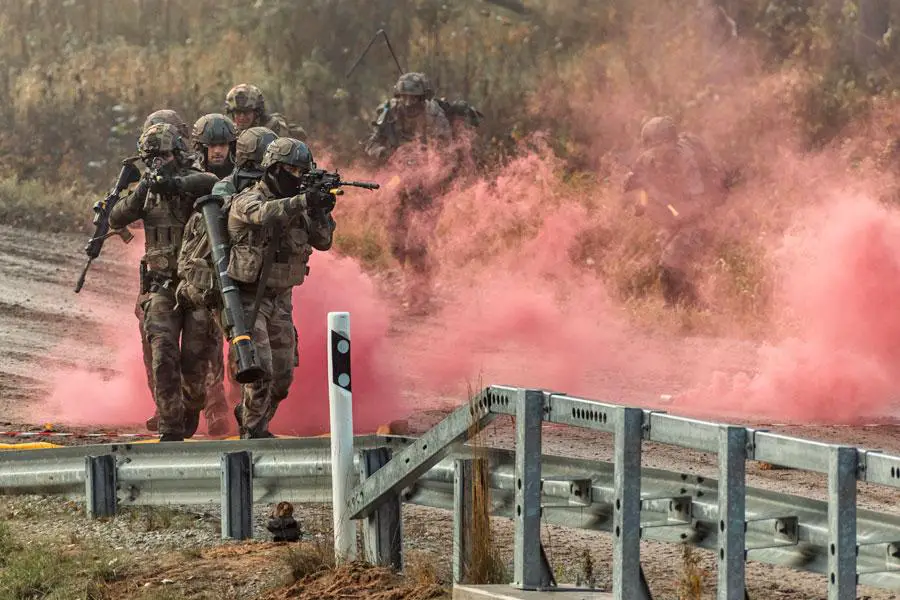1st Infantry Brigade Allied Battle Group Integration Exercise BOLD HUSSAR concludes a series of OKAS combat readiness exercises. In total, more than 7,000 soldiers, reservists and defence allies from Estonia, Great Britain, Denmark, France, Belgium and Germany have taken part in the exercise at various stages. Almost 2,000 defence personnel from the Allied Battle Group, Scouts Battalion, 1st Infantry Brigade Headquarters and Brigade Sub-Units, Guards Battalion, Defence Academy and the Air Force took part in the BOLD HUSSAR exercise. Air support was provided with Estonian Air Force Robinson helicopters and L-39 training jets, Eurofighter fighter jets from Germany and Great Britain, and F-16 fighter jets from Belgium.

“All our activities that we wanted to practice have been practised and the brigade is significantly better prepared to perform its combat mission. believe that the participants of the exercise will take with them the self-confidence that they are able to solve tasks in a difficult situation in a very diverse combat activity and in very challenging situations. the BOLD HUSSAR exercise, which ends today, helped consolidate previous experiences and identify bottlenecks that need improvement,” said the commander of the 1st Infantry Brigade, Colonel Andrus Merilo.
“The exercise provided a very good opportunity to understand how to perform various tasks considering the Estonian landscape and environment and how to best integrate the capabilities of the battle group into the existing structure,” said Lieutenant Colonel William Hodgkinson, commander of the allied battle group.

The combat readiness exercise began on September 22 with an additional training gathering, which lasted until September 28, mainly in North-East Estonia, and continued with the Decisive Lancer staff exercise aimed at land defence circles and the allied battle group integration exercise BOLD HUSSAR. The OKAS 2022 exercise combined the defence and deterrence posture of NATO in Estonia with the exercises of the defence forces, the Defence League and the allies with the training of reservists all over Estonia. The activities of NATO, including Estonian soldiers, were visible both in the air, at sea and on land, including in urban areas. Land defence covering the entire country, integration of allied units and cooperation of state authorities in a crisis situation were practised.

Enhanced Forward Presence (EFP) is a NATO-allied forward-deployed defense and deterrence military force in Central and Northern Europe. In June of 2016, at the Warsaw Summit, the leaders of NATO’s 28 member countries decided, as a result of the changed security situation, to station alliance battle groups in Estonia, Latvia, Lithuania and Poland. The purpose of the battle group stationed in Estonia is to demonstrate solidarity, to strengthen Estonia’s independent defence capability, to deter Russia and keep the peace; in other words, the battle group is ready, if necessary, to stand with the Estonian Defence Forces against Russian aggression, in order to buy time until the arrival of Allied Forces.















